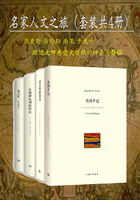Qui suis-je, moi qu'on accuse? Un esclave de la Liberte, un martyr vivant de la Republique.
"Discours de Robespierre, 8 Thermidor."
(Who am I,--_I_ whom they accuse? A slave of Liberty,--a living martyr for the Republic.)It roars,--The River of Hell, whose first outbreak was chanted as the gush of a channel to Elysium.How burst into blossoming hopes fair hearts that had nourished themselves on the diamond dews of the rosy dawn, when Liberty came from the dark ocean, and the arms of decrepit Thraldom--Aurora from the bed of Tithon!
Hopes! ye have ripened into fruit, and the fruit is gore and ashes! Beautiful Roland, eloquent Vergniaud, visionary Condorcet, high-hearted Malesherbes!--wits, philosophers, statesmen, patriots, dreamers! behold the millennium for which ye dared and laboured!
I invoke the ghosts! Saturn hath devoured his children ("La Revolution est comme Saturne, elle devorera tous ses enfans."--Vergniaud.), and lives alone,--I his true name of Moloch!
It is the Reign of Terror, with Robespierre the king.The struggles between the boa and the lion are past: the boa has consumed the lion, and is heavy with the gorge,--Danton has fallen, and Camille Desmoulins.Danton had said before his death, "The poltroon Robespierre,--I alone could have saved him."From that hour, indeed, the blood of the dead giant clouded the craft of "Maximilien the Incorruptible," as at last, amidst the din of the roused Convention, it choked his voice.(Le sang de Danton t'etouffe!" (the blood of Danton chokes thee!) said Garnier de l'Aube, when on the fatal 9th of Thermidor, Robespierre gasped feebly forth, "Pour la derniere fois, President des Assassins, je te demande la parole." (For the last time, President of Assassins, I demand to speak.)) If, after that last sacrifice, essential, perhaps, to his safety, Robespierre had proclaimed the close of the Reign of Terror, and acted upon the mercy which Danton had begun to preach, he might have lived and died a monarch.But the prisons continued to reek,--the glaive to fall; and Robespierre perceived not that his mobs were glutted to satiety with death, and the strongest excitement a chief could give would be a return from devils into men.
We are transported to a room in the house of Citizen Dupleix, the menuisier, in the month of July, 1794; or, in the calendar of the Revolutionists, it was the Thermidor of the Second Year of the Republic, One and Indivisible! Though the room was small, it was furnished and decorated with a minute and careful effort at elegance and refinement.It seemed, indeed, the desire of the owner to avoid at once what was mean and rude, and what was luxurious and voluptuous.It was a trim, orderly, precise grace that shaped the classic chairs, arranged the ample draperies, sank the frameless mirrors into the wall, placed bust and bronze on their pedestals, and filled up the niches here and there with well-bound books, filed regularly in their appointed ranks.An observer would have said, "This man wishes to imply to you,--I am not rich; I am not ostentatious; I am not luxurious; I am no indolent Sybarite, with couches of down, and pictures that provoke the sense; I am no haughty noble, with spacious halls, and galleries that awe the echo.But so much the greater is my merit if I disdain these excesses of the ease or the pride, since I love the elegant, and have a taste! Others may be ****** and honest, from the very coarseness of their habits; if I, with so much refinement and delicacy, am ****** and honest,--reflect, and admire me!"On the walls of this chamber hung many portraits, most of them represented but one face; on the formal pedestals were grouped many busts, most of them sculptured but one head.In that small chamber Egotism sat supreme, and made the Arts its looking-glasses.Erect in a chair, before a large table spread with letters, sat the original of bust and canvas, the owner of the apartment.He was alone, yet he sat erect, formal, stiff, precise, as if in his very home he was not at ease.His dress was in harmony with his posture and his chamber; it affected a neatness of its own,--foreign both to the sumptuous fashions of the deposed nobles, and the filthy ruggedness of the sans-culottes.Frizzled and coiffe, not a hair was out of order, not a speck lodged on the sleek surface of the blue coat, not a wrinkle crumpled the snowy vest, with its under-relief of delicate pink.At the first glance, you might have seen in that face nothing but the ill-favoured features of a sickly countenance; at a second glance, you would have perceived that it had a power, a character of its own.The forehead, though low and compressed, was not without that appearance of thought and intelligence which, it may be observed, that breadth between the eyebrows almost invariably gives; the lips were firm and tightly drawn together, yet ever and anon they trembled, and writhed restlessly.The eyes, sullen and gloomy, were yet piercing, and full of a concentrated vigour that did not seem supported by the thin, feeble frame, or the green lividness of the hues, which told of anxiety and disease.















